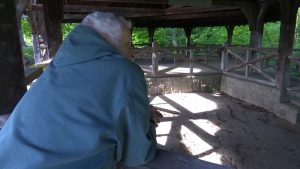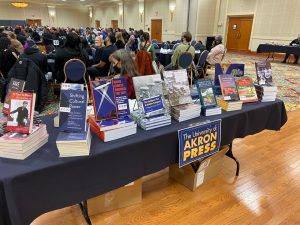Monday marks the 60th anniversary of the March on Washington, lead by Martin Luther King Jr. and other giants of the civil rights movement. The march and King’s remarks that day are lodged in Americans’ collective memory as a turning point in the struggle for civil rights the 1960s.
What You Need To Know
- On Saturday, new generations will join with those who marched in August of 1963 to mark the 60th anniversary of the March on Washington, lead by Martin Luther King Jr. and other giants of the civil rights movement
- Organizers, which include the Rev. Al Sharpton and Martin Luther King III, note it is “not a commemoration” but “a continuation,” the theme of the day’s events
- Bernice King was just five years old when a gunman assassinated her father in Memphis, Tenn. This month, she sat down with Spectrum News to discuss the legacy of the march and her father, as well as the state of race in America today
- “These kinds of anniversaries help us to continue that struggle,” Bernice King told Spectrum News. “Because as we say, if you don’t know your history, you’re bound to repeat it”
On Saturday, new generations will join with those who marched in August of 1963 to mark the occasion at the Lincoln Memorial, where King and others stood. Though organizers, which include the Rev. Al Sharpton and Martin Luther King III, note it is “not a commemoration” but “a continuation,” the theme of the day’s events.
The 1963 March on Washington for Jobs and Freedom, as it was officially dubbed, culminated at the Lincoln Memorial, which became the setting for perhaps King’s most famous speech: the “I Have A Dream” speech that was given mostly off the cuff, rather than from written remarks in front of him.
“He had used a great portion of that in Detroit, when there was a Freedom March there in June [1963], he had us portions of that in a church somewhere in the south, even before June,” said Dr. Bernice King, the youngest daughter of Dr. King and his wife Coretta.
Bernice King was just five years old when a gunman assassinated her father in Memphis, Tenn., leaving her with few of her own memories of the man who was a giant in the struggle for equal rights and soon reached a nearly incomparable status in the American mythos. But her mother and siblings often shared their memories with her growing up.
“When he came home, my mother told me that we were like his refuge from the rest of the world. He loved playing with the kids,” King told Spectrum News in an interview ahead of the anniversary. “He was not the one who would do the discipline, mother did the discipline, so that he [could] have that time with the family because she always knew… they always knew there was some impending danger and harm that would probably come to him. So she wanted him to have as much time as he could with us.”
The original March on Washington brought nearly a quarter of a million people to the National Mall on August 28, 1963, taking place a century after President Abraham Lincoln signed the Emancipation Proclamation ensuring freedom for enslaved individuals. King’s speech on the steps of the Lincoln Memorial lasted just 17 minutes, but is considered one of the most important of the 20th century.
While the blatant and brutal segregation of King’s era might be a thing of the past in the United States, prejudice and racially-motivated violence remain and have grown in recent years.
“When you think about violence, violence is much more widespread than what we define is, you know, violent crimes. Violence is in our speech, you know, our rhetoric, it’s, it’s in the way in which we make policy,” said his daughter. “His teachings are more needed, perhaps today than ever before, to help us to kind of calibrate and find a way through, you know, all have this polarization and find a common ground.”
White nationalism has been resurgent in recent years, from the deadly “Unite the Right” march in Charlottesville, Va in 2017, to the prominence of white supremacist groups such as the Proud Boys and the Oath Keepers during the Jan. 6, 2021 attack on the U.S. Capitol. Such incidents have highlighted the racism ingrained in the American psyche and politics that remains and the urgent need to confront it.
“We still have tremendous work to do, and so coming back here kind of reconnects and re-energizes individuals, and hopefully, as time passes, new generations will understand their responsibility to the freedom struggle,” Bernice King said. “My mother said something, she said ‘struggle is a never ending process, freedom is never really won. You earn it and in it in every generation.’”
“And so these kinds of anniversaries help us to continue that struggle,” she continued. “Because as we say, if you don’t know your history, you’re bound to repeat it.”




